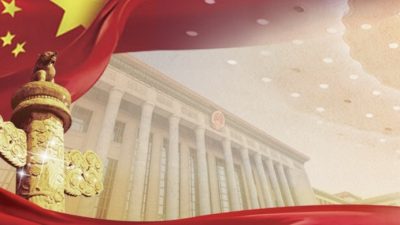The Decline of the US Does Not Mean Plain Sailing for China
It is more nuanced as the country faces challenges both known and unknown.

Who lost China? The question, first asked when Mao’s dictum about power coming from the barrel of a gun proved pertinent and Truman was in the White House, is being asked again with renewed vigor. Some in the West believed that greater engagement with China would inevitably lead to the country opening up and forging closer ties to the Unites States and Europe. China always viewed things differently. It is often overlooked, though not in China, that it has engaged with the West before, not to its advantage. And then there was 1999. Chinese-people are convinced they were deliberately attacked by America. The US bombing of the Chinese Embassy in Belgrade in 1999 was no accident, most people in China believe. US President Bill Clinton apologizing for the bombing, stating it was accidental did nothing to alter this viewpoint.
The US selling arms to Taiwan or keeping close ties with the Dalai Lama is not exactly viewed, in Beijing, as the behavior of a friendly partner. But up until now at least, optimism, based on “differences, sure we have them, but things will get better”, reigned. For decades since the historic Nixon-Mao meetings of the early 1970s, US policy to China has been noted for its lack of change, unlike say US relations with Moscow. Ever greater engagement with China has been the mantra.
That policy survived Tiananmen Square in 1989 and China’s premature (its market was not ready) entry into the World Trade Organization in 2001 and China’s trade surpluses.
US presidents have essentially drawn from the same playbook. They have turned a blind eye, the other cheek, perhaps too often as they emphasized support for China’s continued economic emergence at the expense of human rights. A wealthier China they were convinced benefits everyone. The view in China is more nuanced. Fine if the people are wealthier but more important for stability, the country’s rulers believe, is that the Party is more secure.
The common-held view that China’s moment has finally arrived at the expense of the US is wrong.
China has made ground but the US retains the dominant role. China is not seeking dominance, certainly a greater say on the world stage, but not dominance.
This is not for altruistic reasons. Beijing’s believes establishing a global presence on the world stage makes the party stronger at home. Anything more, such as being Number 1, and the benefits (from greater responsibility) immediately dry up as seen by the US. The financial crisis of 2008 started in America, after five years of a disastrous Middle Eastern war. And the Trump presidency, especially its inability to cope with the end game, has given China a greater belief in itself.
There is a swagger about Beijing. But there are huge challenges facing China. Certain sectors of the economy are doing well, but the fastest growing business in Beijing is food deliveries. The e-commerce sector is beginning to lose momentum, food deliveries aside. COVID, at least in its widely contagious form, came from Wuhan. Beijing is generally behaving arrogantly abroad and fearful at home. Its trade deals with other countries are facing a wave of criticism, something difficult for Beijing to deal with and counteract. No, this does not mean collapse is imminent but it does suggest that events could take place that the party may find threatening. For instance, an incident that ignites a surge of nationalism on the streets that sees the party hesitant and weak in its response or a naval clash in the South China Sea. Neither scenario can be discounted.
China’s accomplishments, not least economic growth and combating COVID, must be applauded but on the streets of Beijing there is little indication of celebration. Relief? Yes. Gratitude? Yes. A new US administration may mark a more cooperative phase in relations. But as the year ends the chill in the air is not just because of plunging temperatures. The last 12 months show that the unexpected may not be that unusual.
*
Note to readers: please click the share buttons above or below. Forward this article to your email lists. Crosspost on your blog site, internet forums. etc.

